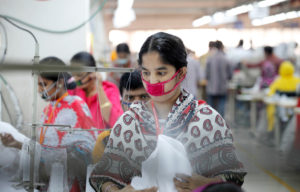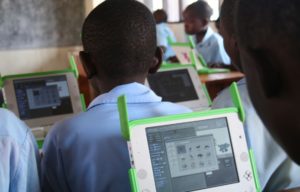
Photo: World Bank / CC BY
Danish Development Aid Reaches its Target
An infinitesimal part of Danish development aid disappears because of corruption. However, 50% of Danes believe that the money falls into the wrong hands.
Share
Facts
The almost 16 billion that Denmark spent on development work in 2012 included development efforts, relief aid, administration and support of international organizations, the UN City and civil society organizations. Of this amount the identified loss accounts for 1.6 million or 0,01 percent.
More than 100 countries, including Denmark, joined the 2005 Paris Declaration on Aid Effectiveness. The declaration among other things intends to give the recipient countries ownership of their own development and base the aid on mutual accountability between donors and partner countries.
Other categories
Region: Denmark
Theme: Humanitarian Aid
What good does it do to make a donation to developing countries if the money is eaten up by corruption?
We hear this argument so often that many people might begin to think it is true. At least 51% of Danes believe that development aid ends up in the wrong hands, even though the Danish International Development Agency stated in 2012 that just 0.1 per mille of aid money was written off due to loss or corruption.
Media focus on corruption scandals
The fact that the actual progress generated by Danish foreign aid money takes up so little space in our awareness may be related to a media focus on a few, though glaring, corruption scandals.
This is the assessment of a senior researcher at the Danish Institute for International Studies, Lars Engberg-Pedersen. For instance, in April this year the Danish newspaper, Politiken, wrote that half a billion DKK of Danish foreign aid money had fallen into the hands of officials, politicians and tribal chiefs in Mali. The truth value of this claim which was later vehemently discussed in the rest of the press.
Even though it is important to have a critical press that holds governments responsible for their responsibility, Lars Engberg-Pedersen thinks that newspapers should concentrate more on spreading information about the large number of projects that progress without corruption:
‘Corruption on a small scale is a condition that you have to accept. Of course, tax money should not be misused and it is important to cover this when it happens. But I lack a varied debate’,he adds, pointing out that essentially it is a problem created by the media:
‘The Ministry of Foreign Affairs focuses on controlling the funds, and often the control function of the Danish International Development Agency sends corruption cases on to the local system of justice.’
Development aid is more effective
Technological developments, especially the internet, have made it harder to cheat on development aid. A recent report from the OECD points out that even though problems with corruption may still occur, there has been a remarkable improvement in efficiency with which money is spent.
For instance, it is easier to get an insight into what public money in developing countries is being used for. According to the OECD, this is helping to hold the countries’authorities responsible for the development aid they get from the international community.
Through technology, citizens in every country have gained an insight in to what governance is and what their government is committed to deliver. From how much money has been put aside for local health clinics, to how many local schools authorities are planning to build within the next few years.







